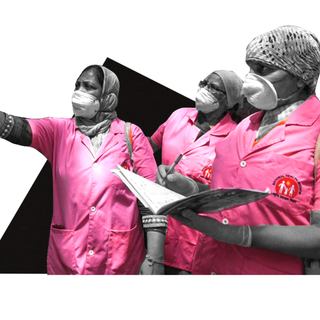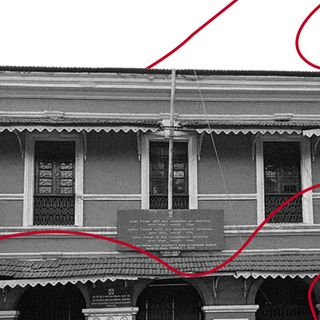In two months from now, Tokyo will host almost 11,000 athletes — from almost 200 countries — and thousands of other organizing members to kick off the postponed Summer and Paralympic games. But the Olympic spirit overlooks health and public safety risks, a group of experts has warned in an article published in the New England Journal of Medicine on Tuesday.
The Games, they say, suffer from shortsightedness in terms of Covid19 management protocols and assessing safety risks — especially as the pandemic becomes more ferocious in Japan along with other parts of the world.
Their apprehensions echo a disquiet within the national and international circuit. On Wednesday, the Asahi Shimbun, a leading newspaper in Japan sponsoring the Olympic Games, published an editorial urging the government to cancel the event. The sentiment is shared among local citizens: nearly 60% of people in Japan say the Games should be axed, according to a poll. Last week, a Japanese doctors’ group wrote to their Prime Minister, expressing valid concerns that the influx of people will exacerbate the country’s outbreak.
Further, the playbook released by the International Olympic Committee (IOC), detailing countermeasures and policies to minimize Covid19 risk to both athletes and Japanese citizens, “is not informed by the best scientific evidence,” researchers say.
The guidelines currently require Olympic athletes to bring their own face coverings and undergo regular temperature screenings once they arrive in Japan — the Games will take place within the Tokyo bubble. Athletes are encouraged (not required) to be vaccinated against Covid19 — along with general guidelines around maintaining personal hygiene and physical distancing. Athletes will participate at their own risk, the playbook says.
These guidelines overlook the limitations of these measures. Ensuring compliance with these guidelines is in itself a formidable task — but more importantly, the very understanding of Covid19 has evolved. We now know the coronavirus transmission is primarily airborne, with most cases being a result of asymptomatic spread (which means plans for temperature checks could overlook pre-symptomatic or asymptomatic cases), and the definition of close contacts constantly changing. Moreover, the guidelines “do not adequately protect the thousands of people — including trainers, volunteers, officials, and transport and hotel employees — whose work ensures the success of such a large event,” experts say. There is no playbook for volunteers — only a brief pamphlet on precautionary measures.
“The IOC’s playbooks are not built on scientifically rigorous risk assessment, and they fail to consider the ways in which exposure occurs, the factors that contribute to exposure, and which participants may be at highest risk,” the researchers said. They “urgently” recommend a risk-management approach more in line with the science and data on Covid19, and that World Health Organization “immediately convene an emergency committee.”
Related on The Swaddle:
International Olympics Committee Announces Near Gender Parity Throughout Its Administration
While companies like Pfizer and BioNTech have volunteered free vaccines for participants, the prospect of vaccinating athletes also remains uncertain at best.
“Vaccine authorization and availability are lacking in more than 100 countries. Moreover, some athletes may choose not to be vaccinated because of worries about the effects of vaccination on their performance.” Age eligibility in countries also means adolescents between 15 and 17 years of age cannot be vaccinated in most countries.
Japan had postponed Tokyo Olympics in March 2020, when it had an active caseload of 865 cases against the global tally of 3,85,000 active cases. The assumption then was the pandemic would either be tamed by 2021 or mass immunization will make it safe to conduct the competition. One year later, the nation is struggling to contain its fourth wave and is in a state of emergency — owing to a surge in cases, the spread of more transmissible variants, and less than 5% of its population is vaccinated. Officials believe extending the current emergency is “unavoidable” in most prefectures.
The Tokyo 2020 board met on Wednesday and said the possibility of canceling or postponing the Olympics or Paralympics was not raised, according to a USA Today report. “Nobody has explicitly mentioned a view that we should postpone or cancel,” CEO Toshiro Muto said at a press briefing. He said the IOC’s decision will take into account consultations with health organizations and experts, and the playbooks will also be updated next month in line with requirements.
The final decision rests with the International Olympic Committee, but the weighing scale seems to be skewing more in favor of the Games than public health. Regardless, an existential question dangles — with searing urgency — in front of the Olympics spirit.




